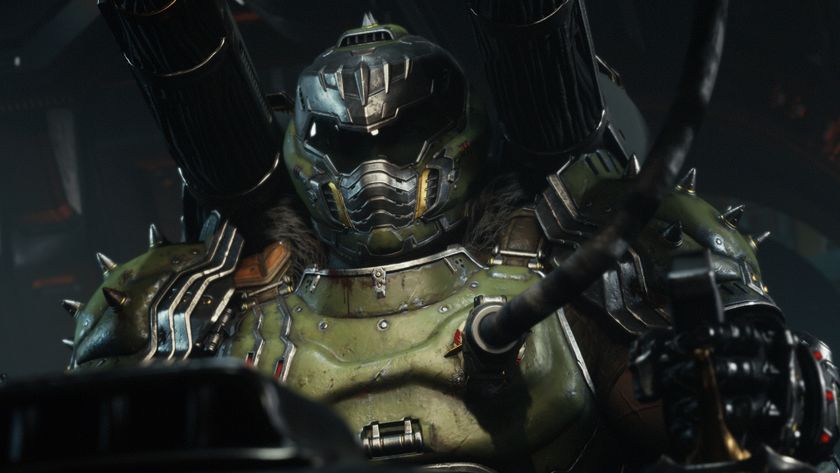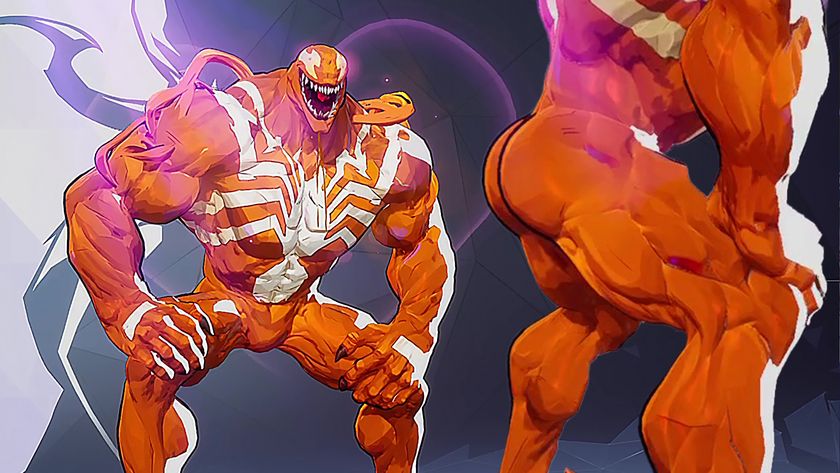In Perspective: Why is everything free-to-play?
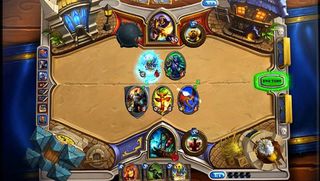
Free-to-played out
Cliff Bleszinski's next project is free-to-play. The lead designer of StarCraft's next project is free-to-play. Two of Blizzard's big new games are free-to-play. Obsidian (y'know, the RPG people) are making a free-to-play tank game. Every other paid subscription MMO is converting to free-to-play. You get the picture; game creators and executives are flocking to free-to-play like it's some kind of religious revival.
Nearly matching the upbeat clamor of free-to-play press releases is the distraught roar of gamers conditioned to react to the phrase like lab rats to electric shocks. Where consultants see more accessible games for a wider audience, gamers see more sinister nickel-and-diming. But why are the suits so excited and the gamers so aghast? Turns out they do share (a little) common ground.
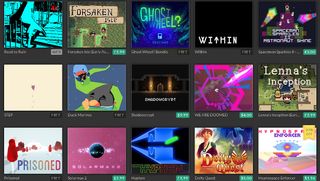
Before we start...
Ok, so you'd be forgiven for feeling like every other video game announced these days is free-to-play, that the freemium business model is popping up everywhere you would expect it and a bunch of places you wouldn't like a bad rash. And it is widespread.
F2P is the best-established new payment scheme for gaming, but it's not the only one. Just look at Humble Bundle, which packs a bunch of games together and lets players pay what they want for them. Even better, look at Itch.io, which lets developers host truly free or pay-this-much-or-more projects with relative ease. Or gaze with one part joy and one part consternation at Steam Early Access, which hosts dozens of successful premium-priced games in their infancy. F2P isn't the only way forward, it's just the one most likely to be compared to a skin condition.
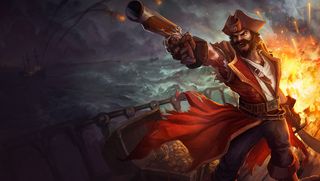
They're harder to pirate
Free-to-play games can be hacked, exploited, and linked to illegitimate servers, but it's a lot more difficult to pirate them to the same extent as paid-up-front games. Their marketplace subsistence means they're built to live online. They become as much of a service as they are a product, and it's a lot harder to steal cable than it is to pirate an episode of Game of Thrones.
That makes the genre's growth on PC in particular even less surprising. Many subjects of interest were cited in PC gaming's alleged disappearance, but one usual suspect was piracy. It's impossible to say exactly how much impact piracy actually had on software sales, but it was a grim specter for companies interested in the platform. Making a free-to-play title neatly circumvents that issue, bringing one of the world's most accessible gaming platforms back to the spotlight.

You can't sell them to GameStop
Of course, all those developers that hedged their bets on consoles in part to avoid the specter of piracy ran into a new problem. Unlike PC games, which had used CD keys as a security standard for years, most console games could be played by anybody with the disc. Enter the online pass, season pass, and Xbox One's since-abandoned game-locking DRM schemes, each one the source of endless irritation.
Nobody has to worry about any of that crud with free-to-play games because it's all built in from the beginning. Players gladly pump money into an account rather than a resale-ready product, and they don't generally mind the tradeoffs. Yeah, those accounts can technically be sold, and there will always be a black market for them, but it hardly compares to your neighborhood used game peddler.
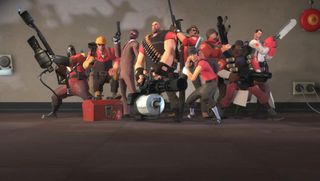
Players are their content
The other players in a multiplayer game can often be classified as: a) assholes, b) racist assholes, c) racist sexist assholes, and d) so high right now. They feed the enemy team, shoot you in the back, spam the chat, play terrible music so loud it gets beamed into voice chat, and in general make you wish you were dead. They're not worth the pixels they take up on your screen except, they actually are.
Players--not new characters, levels, or costumes--are the most valuable content a multiplayer game can provide you. Without other players, all of the other stuff is pointless. The easiest way to make sure that high-value players stick around for a long time is to give them plenty of company, and the easiest way to do that is to bulldoze one of the largest barriers to entry: the price tag.

They're easier to share
Back in the day, we had these things called "demos." It was short for "demonstration", but it was also fun to pretend it stood for "delineated moment" or maybe "definitive monster (battle)". They would come on discs inside magazines or slowly download to your computer from websites with "Planet" somewhere in the URL. Then you'd play for half an hour and try to extrapolate whether the rest of the game was worth a trip to the mall (probably in the sleet, it was always sleeting back then).
Now you can see your friend geek out about Blacklight Retribution on Twitter at 6:30 and start machine gunning zombies with her by 7:00. You can watch your preferred YouTube personality shriek praise for Infinite Crisis and try on steampunk Batman for yourself without laying down a cent. By moving from the locked display case to the samples box, games cast an infinitely larger net--and they're bound to catch a few whales.

They're more accessible
But forget the whales. The free-to-play publishers would prefer we didn't, but forget them, too. Lowering the barrier to entry by eliminating up-front cost doesn't just mean more people can play, it means more kinds of people can play: the kind of people for whom $60 will keep them from paying rent this month; the people who can't justify buying a home computer but can put enough cash together for a few hours at an internet cafe here and there; the kind of people that our expensive hobby typically overlooks.
Yeah, you still need access to a computer or console to begin playing, which is a significant hurdle of its own. But thanks to games like Team Fortress 2 and League of Legends, many folks who would otherwise be out of the hobby can enjoy great game design and maybe be inspired to make some cool games of their own. Or they could play Farmville, but no system is perfect.
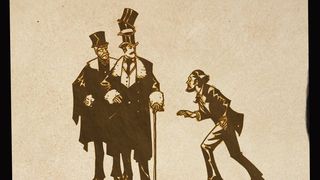
They can get in your head
Buying a $60 game is such a simple decision (we're living in a perfect little world with no DLC for the moment, just entertain the thought). You can do some research on the product, read some reviews, consider your prior history with the series or the developer. If you still want to buy the game after all that consideration, you can bring it home and feel confident about getting your money's worth.
But free-to-play games let you get personally invested before they start asking for cash. They might wear down your self-control with a cash-circumventable grind, or they might show you an opponent rocking a particularly stylish costume that you feel more compelled to acquire every time you see it. It's tough to do a satisfactory cost-benefit analysis of the Towering Pillar of Hats, and it's harder to see its impact on your wallet until you add it up with all the others.

Running free
So yeah, there are a few less-than-wholesome reasons for developers to pursue free-to-play games. But there can be just as many benefits for players, as long as they stay aware of the trade-offs. Do you think it's a fair bargain, or would you rather pay up front and be done with it?
For perspective on another sweeping industry trend, check out why everybody's making MOBAs. Or if the sight of "F2P" and "MOBA" in one slide make your blood boil, maybe read why we're all hurt by the "angry gamer" archetype.

I got a BA in journalism from Central Michigan University - though the best education I received there was from CM Life, its student-run newspaper. Long before that, I started pursuing my degree in video games by bugging my older brother to let me play Zelda on the Super Nintendo. I've previously been a news intern for GameSpot, a news writer for CVG, and now I'm a staff writer here at GamesRadar.
